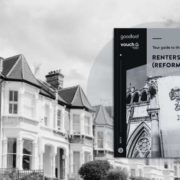The percentage of tenants in rent arrears decreased during October and November, according to research from PayProp. Payment data from the rental payment platform also shows that the typical percentage of rent in arrears fell consistently from August to November.
However, with strict COVID-19 restrictions across large parts of the country set to remain in place for the foreseeable future, PayProp says letting agents and landlords should prepare themselves for arrears increasing again in the first few months of 2021.
Proportion of tenants in arrears drops to lowest level since March
PayProp’s platform data offers hard financial evidence that the percentage of tenants in arrears dropped to 11.8% in November, down from 12.2% in October.
This is the lowest percentage recorded since before the spring lockdown in March when 9.6% of tenants were in arrears.
The number of tenants in arrears spiked during September, to 15.1%, although this remains below the 2020 peak of 15.5% recorded in May. A rise in September could be due to increased redundancies as official figures showed that 11.3 people per 1,000 employees were made redundant as the pandemic continued to hit businesses.
“The general downward trend of tenants in arrears over the autumn and winter months of 2020 is positive news for letting agencies and landlords,” says Neil Cobbold, chief sales officer at PayProp.
“Falling arrears suggest that even though restrictions were tightened once more towards the end of the year, society has adapted to the ‘new normal’.”
Renters are keen to pay back what they owe
The research shows that the percentage of rent owed by tenants in arrears fell to 121.1% in November, down from 124.4% in October and 125.5% in September.
The level of rent owed by tenants in arrears in November was equivalent to the level recorded in May but didn’t quite reach the peak of 127% recorded in August.
Meanwhile, 77% of tenants paid off some or all of their arrears between September and October, while a further 50% paid back arrears between October and November.
Between August and November, the percentage of tenants reducing their arrears averaged between 44% and 48%, while the percentage increasing the amount they owed also remained high at an average of 45% to 49%.
“Our research shows that on the whole, tenants who end up in arrears try to clear them. Even if they cannot afford to pay back the full amount, renters are generally open to reducing what they owe through affordable repayment plans,” Cobbold explains.
“A particularly high level of tenants reducing their arrears during September could have been linked to a resumption of evictions in England and Wales, with renters agreeing to pay back what they owe in order to avoid their landlord seeking repossession.”
Arrears could rise again in early 2021
Despite the reduction in arrears recorded between September and November, the situation could worsen again in the early part of 2021.
PayProp says this is partly due to a seasonal bump in arrears as people spend more over the festive period. Meanwhile, with millions of people under the strictest tier 4 restrictions, more jobs could be at risk.
“Although the situation improved towards the end of 2020, current market conditions mean that letting agents and landlords should be cautious at the start of 2021 as things could get slightly worse before they get better,” says Cobbold.
“Agents must ensure they have the systems in place to deal with arrears, while facilitating effective communication between landlords and tenants.”
Although arrears could rise again in the coming months, 70% of tenants surveyed by PayProp said Covid-19 and subsequent lockdowns have not made it more difficult for them to pay rent.
“Restrictions put pressure on sectors such as hospitality, but they also give tenants the opportunity to save money which would otherwise have been spent on socialising,” Cobbold adds.
“With the extension of the furlough scheme until the end of April, as well as the ongoing national rollout of a COVID-19 vaccine, there is optimism that tenant finances will be in a stronger position by the middle of 2021,” he concludes.
























Comments